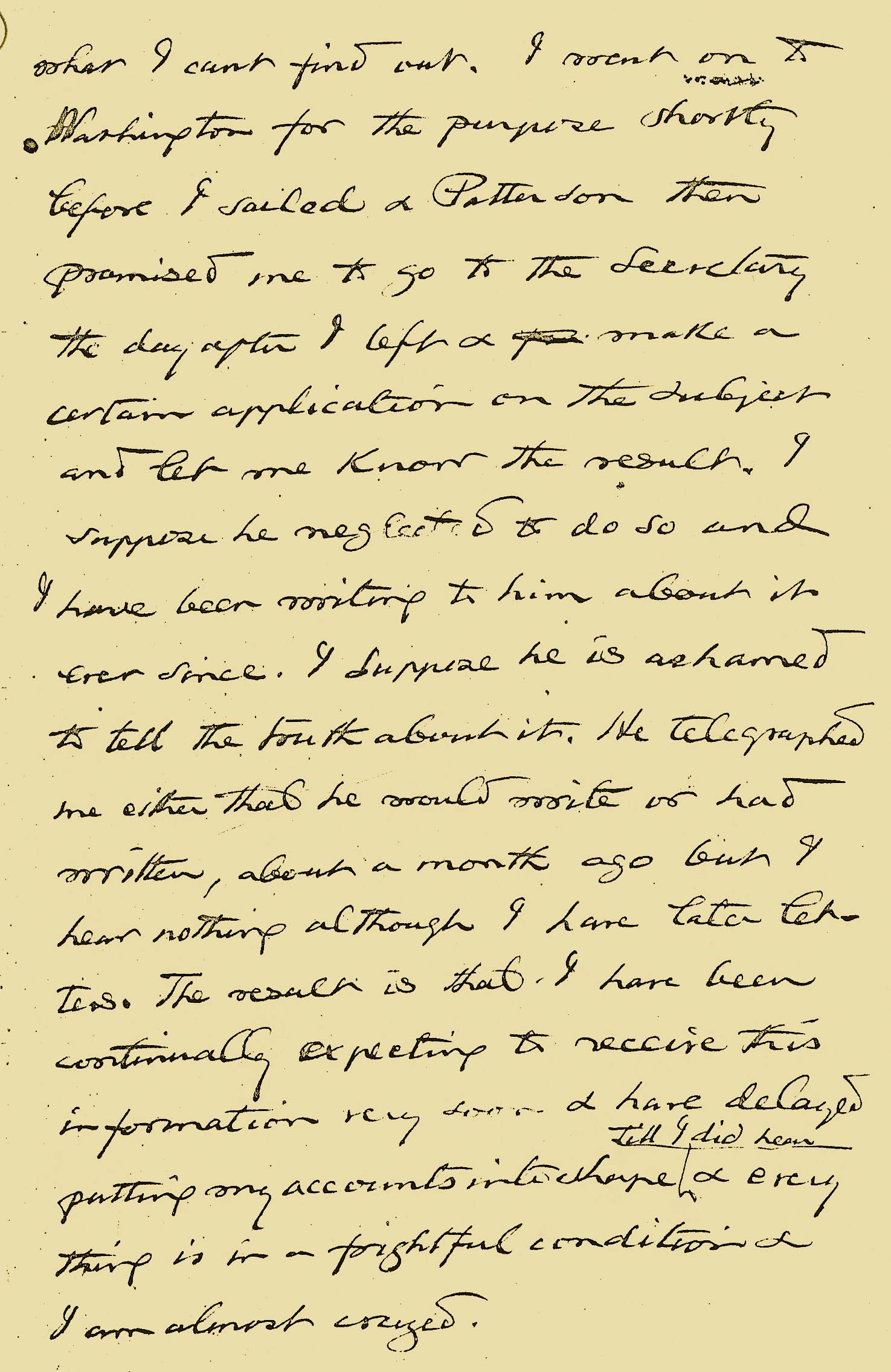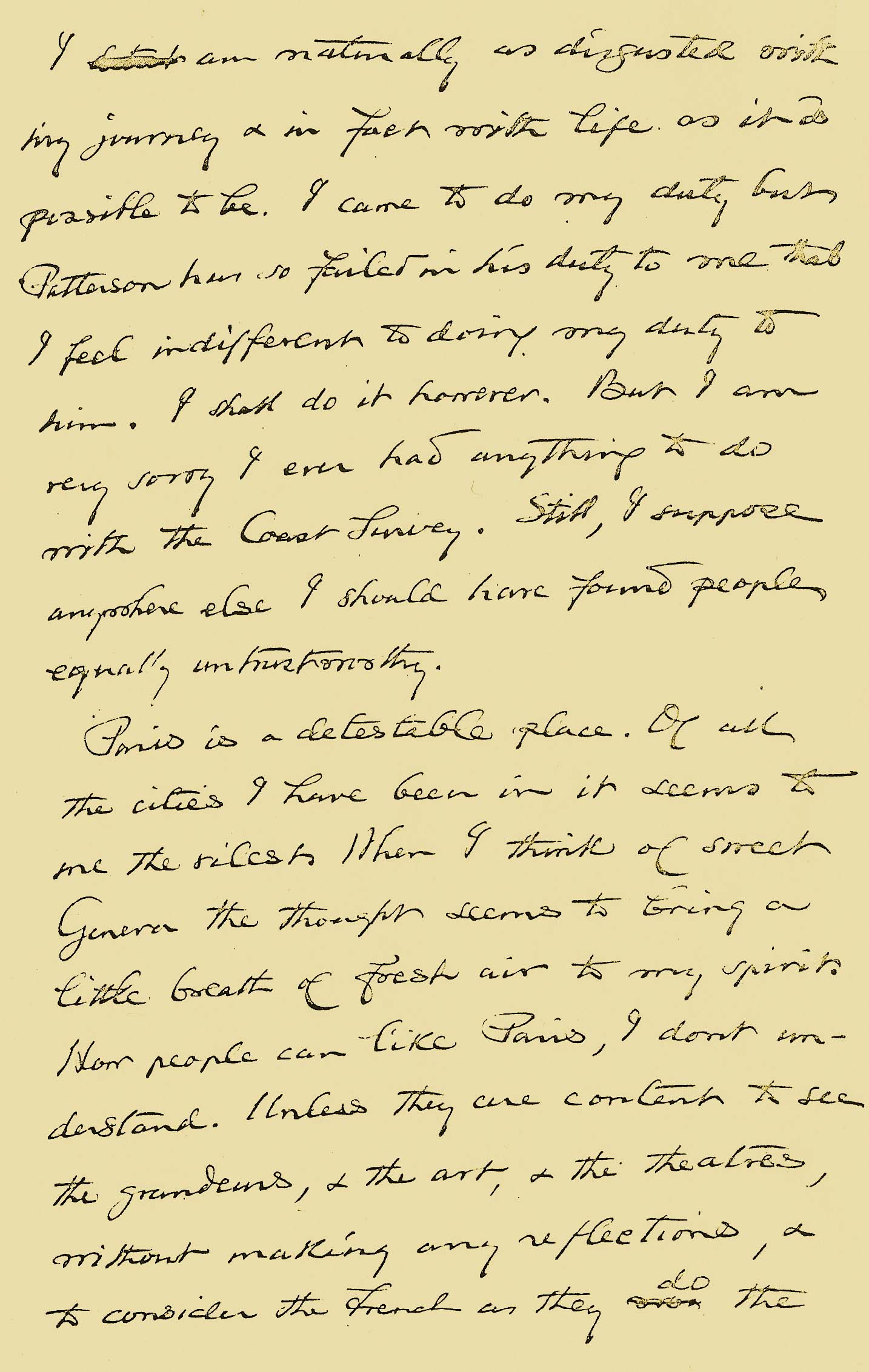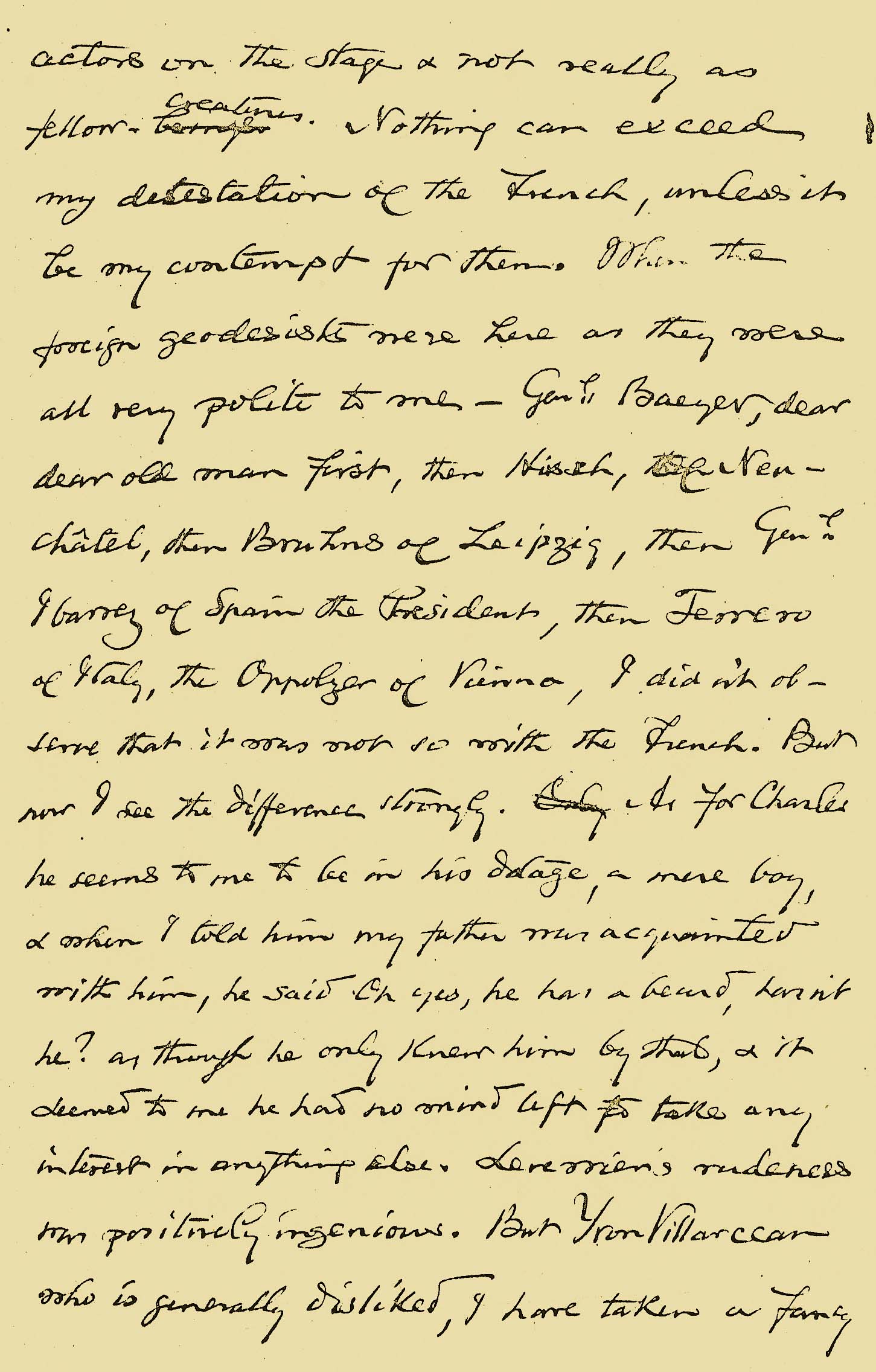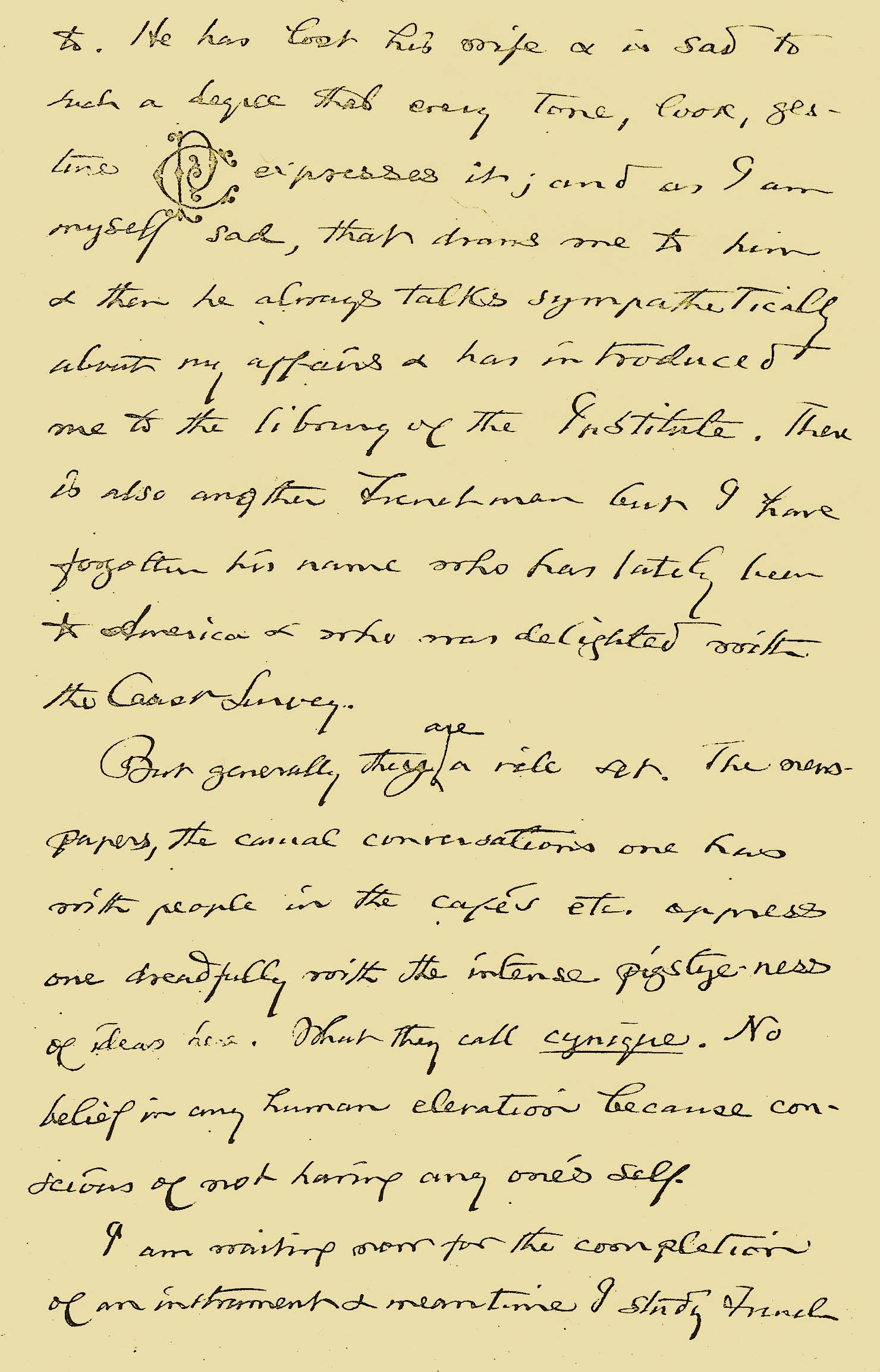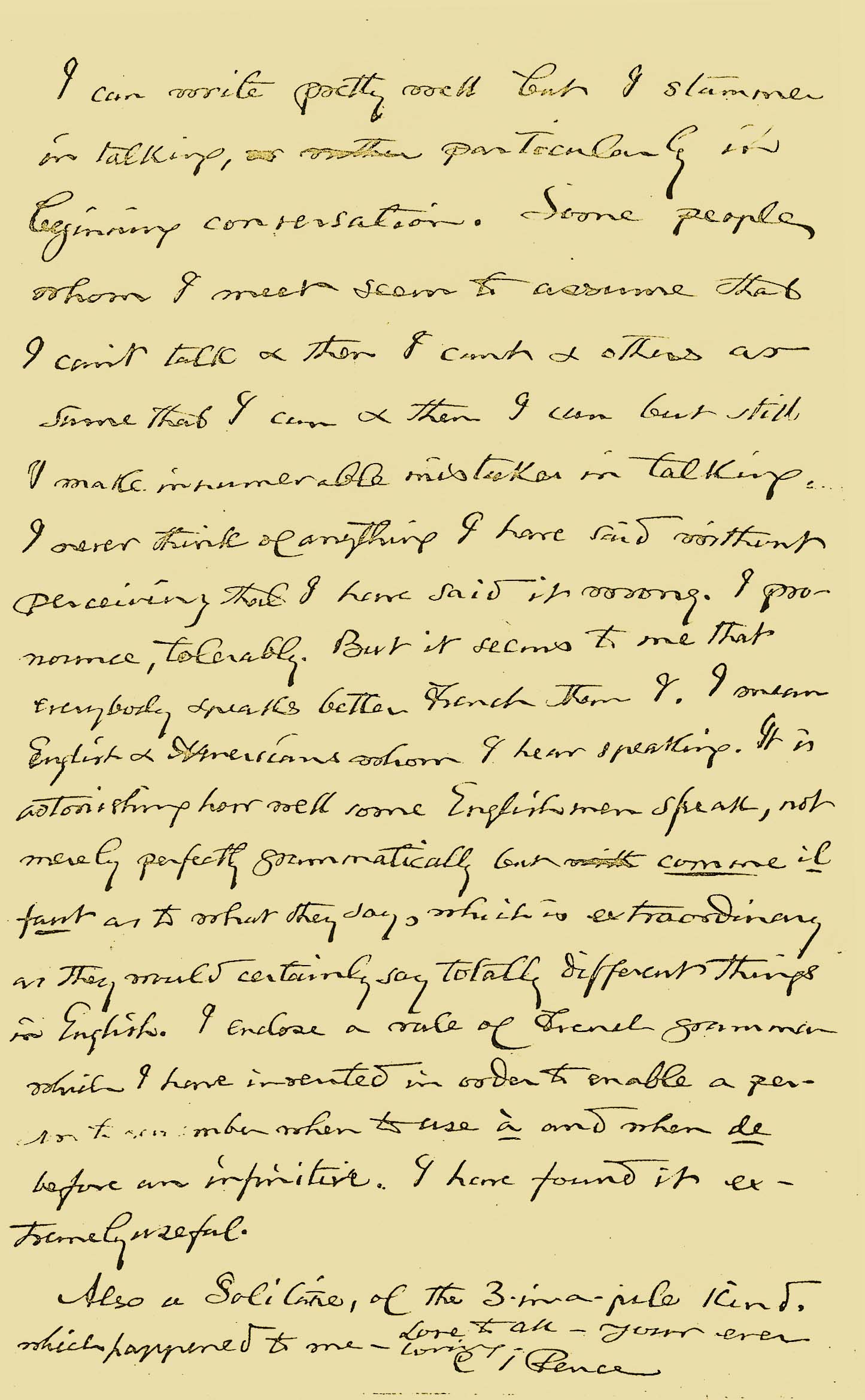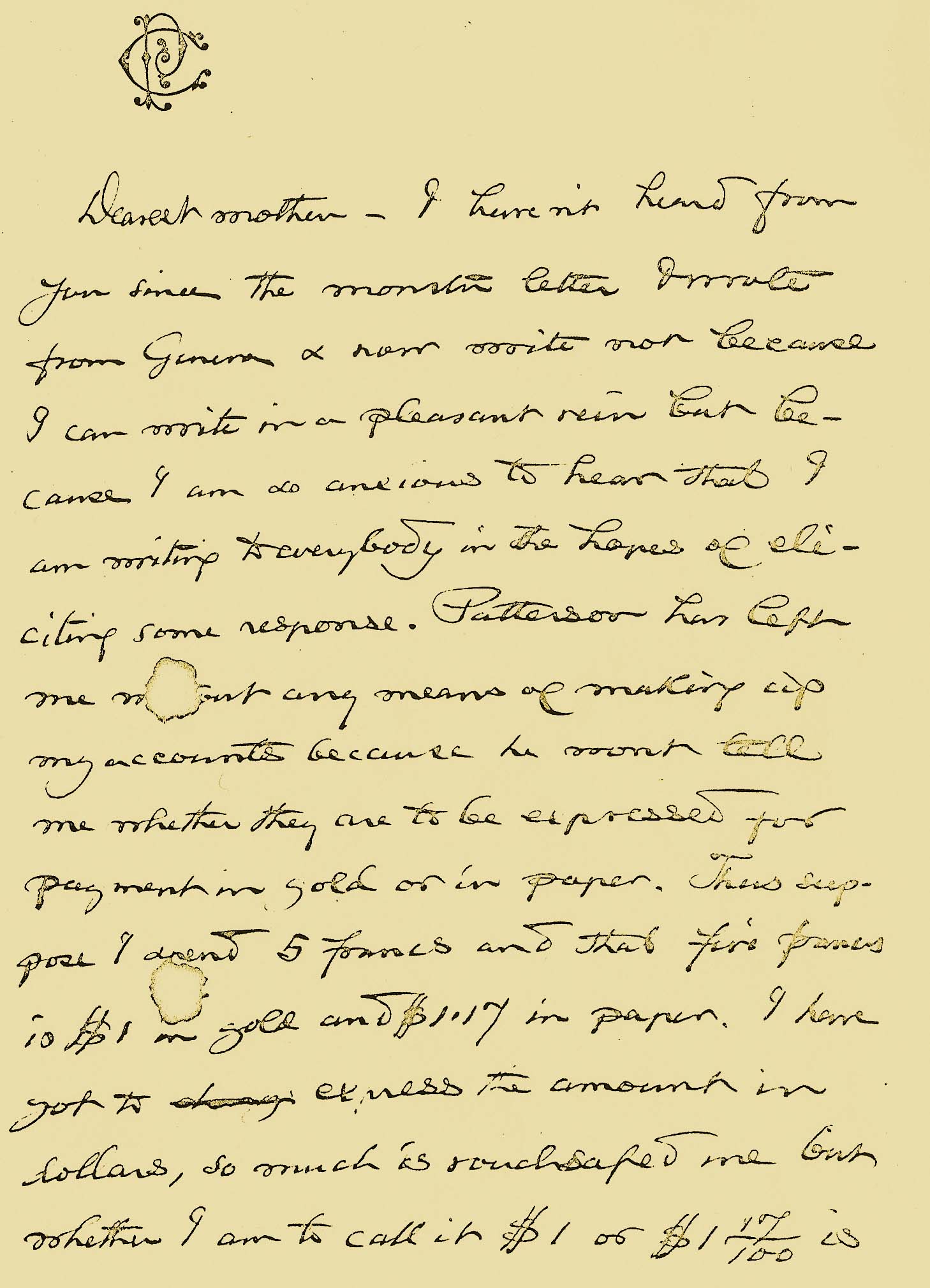
17 th 1875
Dearest mother,
I haven't heard from you since the monster letter I wrote from Geneva & now write not because I can write in a pleasant vein but because I am so anxious to hear that I am writing to everybody in the hopes of eliciting some response. Patterson has left me without any means of making up my accounts because he wont tell me wether they are to be expressed for payment in gold or in paper. Thus suppose I spend 5 francs and that five francs is $1 in gold and $1.17 in paper. I have got to express the amount in dollars, so much is vouchsafed me but whether I am to call it $1 or $1 17/100 is
